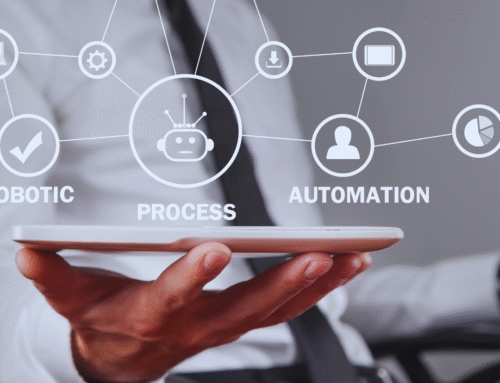
In today’s competitive landscape, businesses are increasingly adopting AI-driven software solutions to enhance efficiency and decision-making. AI technologies streamline operations, automate routine tasks, and provide valuable insights, making them indispensable for modern enterprises. This integration not only helps reduce operational costs but also enables businesses to respond more swiftly to market changes.
The capability of AI to analyze vast amounts of data transforms how organizations understand customer behavior and preferences. By leveraging predictive analytics, businesses can tailor their offerings, improving customer satisfaction and loyalty. Furthermore, AI can improve internal processes, fostering collaboration and innovation across teams.
Understanding the impact of AI on business software is crucial. Companies not utilizing these advancements may struggle to keep pace with those that do. As AI continues to evolve, it shapes the future of business operations, creating opportunities that were previously unimaginable.
Foundations of AI in Modern Business Software
Artificial intelligence serves as a fundamental pillar in the development of modern business software solutions. Understanding its core components and capabilities is essential for effective integration into business operations.
Understanding Artificial Intelligence and Machine Learning
Artificial intelligence (AI) represents a range of technologies that simulate human-like intelligence. It encompasses machine learning (ML), which allows systems to learn from data and improve their performance over time.
AI systems can analyze vast datasets quickly, identifying patterns and trends that would be unnoticeable to humans. Machine learning models are built through training on historical data, enabling predictions and decision-making processes.
A solid grasp of these concepts aids businesses in leveraging AI technologies effectively. Various ML techniques, such as supervised and unsupervised learning, are important for tailoring software solutions to specific needs.
Key AI Capabilities and Technologies
Several key capabilities define modern AI technologies in business software. These include natural language processing (NLP), computer vision, and predictive analytics.
- Natural Language Processing (NLP): Enables machines to understand and interact using human language.
- Computer Vision: Allows systems to interpret visual information, automating tasks like image recognition.
- Predictive Analytics: Utilizes historical data to forecast future outcomes, enhancing decision-making.
These capabilities offer businesses the tools to automate processes, improve customer interactions, and optimize operations. Implementing these technologies can lead to significant efficiencies and competitive advantages.
Integration of AI Systems Into Business Operations
Integrating AI systems into business operations involves strategic planning and execution. Organizations often begin by identifying processes that can benefit from automation or enhanced decision-making.
The integration process typically includes:
- Assessing Needs: Determine key areas where AI can add value.
- Selecting Technology: Choose the appropriate AI tools and platforms that align with business goals.
- Model Building: Develop and train models using relevant data to ensure effectiveness.
Successful integration leads to streamlined operations and informed decision-making. Emphasizing adaptability during this phase can facilitate smoother transitions and better outcomes for the organization.
Core Applications of AI Across Business Functions
AI serves as a transformative tool in various business functions, contributing to operational efficiency, informed decision-making, and enhanced customer experiences. Its applications span across automation, data analytics, and personalization.
Enhancing Operational Efficiency Through Automation
AI-driven automation streamlines repetitive tasks, allowing employees to focus on strategic initiatives. Businesses can implement robotic process automation (RPA) to handle fixed and predictable workflows.
Examples of automation include:
- Invoice processing
- Customer support via chatbots
- Inventory management
Incorporating AI can lead to increased productivity and reduced operational costs. By minimizing human error, companies can achieve higher accuracy in processes, ultimately enhancing overall efficiency.
Advanced Data Analytics and Predictive Insights
AI excels in data analytics by processing vast amounts of data in real time. Through advanced algorithms, organizations can uncover trends and derive actionable insights. For founders and finance leaders seeking practical, modern guidance on fractional CFOs, AI-driven finance systems, and lean finance teams, blogs focused on business finance insights can offer guided information that translates analytics into strategic action.
The key benefits include:
- Data-driven decisions are made faster and more accurately.
- Predictive analytics identifies future trends and potential challenges.
By employing AI tools, businesses can harness data to make strategic choices, thereby enhancing competitiveness and fostering innovation. Real-time data analysis supports agile responses to market changes.
Revolutionizing Customer Experience With AI
AI personalizes the customer journey, creating tailored experiences for individuals. Through machine learning, businesses can analyze customer data to understand preferences and behaviors.
Key applications in customer experience include:
- Personalized recommendations based on user behavior
- Targeted marketing strategies that resonate with specific audiences
- Enhanced customer support systems using AI chatbots
By leveraging AI, companies can significantly improve engagement and satisfaction. This leads to increased loyalty, as customers feel valued and understood, which ultimately drives sales and retention.
AI-Powered Solutions in Key Business Areas
AI technologies significantly enhance various business sectors, driving efficiencies and informed decision-making. These solutions provide tools for data analysis, personalized customer interactions, and proactive risk assessments, among other applications.
AI in Marketing and Personalization
AI transforms marketing strategies through advanced data analysis and customer insights. It enables businesses to segment their audience more effectively, tailoring campaigns based on individual behaviors and preferences.
Key applications include:
- Predictive Analytics: Predicts customer needs and behaviors to create targeted campaigns.
- Chatbots and Virtual Assistants: Enhance customer service by responding to inquiries and guiding users through the sales process.
- Dynamic Content Personalization: Automatically modifies website and email content based on user data, increasing engagement.
These tools help optimize return on investment (ROI) by improving conversion rates and customer satisfaction.
Finance, Risk Management, and Fraud Detection
In finance, AI plays a crucial role in automating tasks and enhancing accuracy. Machine learning algorithms analyze transaction patterns, allowing businesses to identify inconsistencies that may signify fraud.
Key elements include:
- Predictive Risk Models: Assess potential risks before they impact business.
- Fraud Detection Systems: Use anomaly detection techniques to flag suspicious activities.
- Automated Reporting: Improves data management by generating real-time insights for better decision-making.
By leveraging AI, companies can mitigate financial risks and streamline compliance processes.
Supply Chain, Inventory, and Logistics Optimization
AI optimizes supply chain management by providing real-time data and predictive analysis. Businesses can enhance operational efficiency through better inventory management and logistics solutions.
Important capabilities involve:
- Demand Forecasting: AI algorithms predict product demand, reducing overstock and stockouts.
- Route Optimization: Analyzes various factors such as traffic patterns and weather to determine efficient delivery routes.
- Supplier Performance Analysis: Evaluates suppliers based on quality, delivery times, and other metrics to ensure reliability.
These tools lead to reduced operational costs and improved customer satisfaction through timely deliveries.
Human Resources and Employee Engagement
AI enhances human resources by automating repetitive tasks and analyzing employee data. This innovation leads to improved employee engagement and talent management.
Key functionalities include:
- Recruitment Solutions: AI can screen resumes and assess candidates for positions, saving time and resources.
- Employee Sentiment Analysis: Analyzes feedback from employees to gauge engagement levels and identify areas for improvement.
- Performance Tracking: Uses data-driven insights to provide feedback and development opportunities for employees.
These applications help create a more engaged workforce and facilitate better talent management.
Future Trends and Challenges in the AI Business Landscape
The landscape of AI in business is evolving rapidly. Key aspects include the adoption of AI technologies for digital transformation, addressing ethical and cybersecurity challenges, and the emergence of new AI tools that drive innovation in product development.
AI Adoption and Digital Transformation
AI adoption is becoming essential for businesses aiming to enhance efficiency and innovation. Companies are integrating AI-driven solutions, such as virtual assistants and AI chatbots, to streamline operations and improve customer engagement.
Digital transformation is driven by the need for personalized customer experiences. Implementing AI technologies allows businesses to analyze data effectively and tailor services to meet market demand. As organizations invest in deep learning and natural language processing (NLP), they unlock new opportunities for growth and competitiveness.
Ethical Considerations and Cybersecurity
As AI technologies advance, ethical considerations grow increasingly important. Companies must prioritize transparency in AI algorithms to avoid biases that can affect decision-making. This entails utilizing ethical AI frameworks that promote fairness and accountability.
Cybersecurity remains a critical challenge when deploying AI systems. As reliance on these technologies increases, businesses face heightened risks of data breaches and unauthorized access. Robust security protocols are vital to protect sensitive information and maintain customer trust, ensuring sustainable AI implementations.
Emerging AI Tools Shaping Product Development
New AI tools are transforming product development across industries. AI-powered chatbots enhance customer interactions, providing immediate support and personalized recommendations. This fosters better engagement and satisfaction.
Additionally, advancements in AI-driven analytics enable teams to gain insights into consumer behavior. By using these insights, businesses can develop products that align more closely with customer needs and preferences. Innovations in self-driving technology and automation present further opportunities to streamline processes and create cutting-edge solutions in various sectors.



